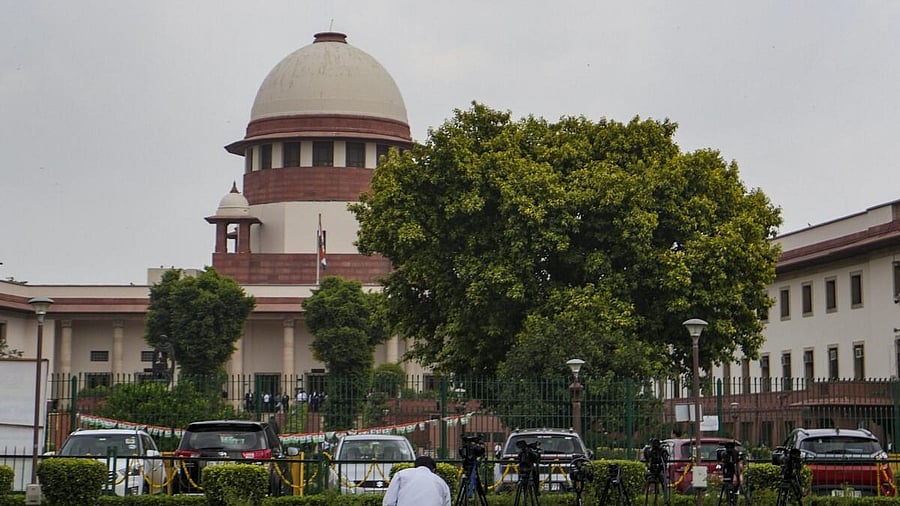
Supreme Court of india.
Credit: PTI Photo
New Delhi: The Supreme Court on Wednesday referred to a three-judge bench, the issue of whether to move before the High Courts for anticipatory bail is the "choice of the party" or moving the sessions court first was mandatory.
A bench of Justices Vikram Nath and Sandeep Mehta said the matter should be fixed for hearing as and when the three-judge bench is constituted.
"This matter requires to be heard by a three-judge bench," the bench said.
The court had earlier appointed senior advocate Sidharth Luthra as an amicus curiae in the matter.
On September 8, 2025, the Supreme Court took an exception to the Kerala High Court directly entertaining pre-arrest bail, without the accused approaching the sessions court.
"If the practice of entertaining the applications for pre-arrest bail directly in the High Court is encouraged, and the parties concerned are not relegated to first approach the Sessions Court concerned, the High Court would be flooded with a spate of pre-arrest bail applications thereby creating a chaotic situation," the court had said.
Dealing with a plea filed by Mohammed Rasal C and another, the court made as absolute an interim protection granted to the petitioners on May 5, 2025.
Having noted the petitioners directly approached the High Court in the matter without approaching the Sessions Court, the bench issued notice to the High Court through its Registrar General.
The court emphasised if the parties are required to approach the sessions court concerned for seeking remedy of pre-arrest bail, there is a strong probability that significant number of applications would be allowed at that level only thereby acting as a filtration process before the process reaches the High Court.
"Though the concurrent jurisdiction is conferred upon the Sessions Court and the High Court to entertain a prayer for pre-arrest bail under Section 482 of the BNSS (formerly Section 438 CrPC), the hierarchy of courts demands that no person seeking such remedy should be encouraged or allowed to directly approach the High Court by bypassing the jurisdiction of the concerned Sessions Court," the bench opined.
The court noted, in most of the States, there is a consistent practice requiring the litigant concerned to first approach the Sessions Court for seeking relief of pre-arrest bail and only in the event of denial of such relief, the litigant would be granted access to approach the High Court for seeking such relief.
"This is, of course, subject to just exceptions and the High Court, for reasons to be recorded, may entertain an application for pre-arrest bail directly in special/extra-ordinary circumstances," the bench said.
